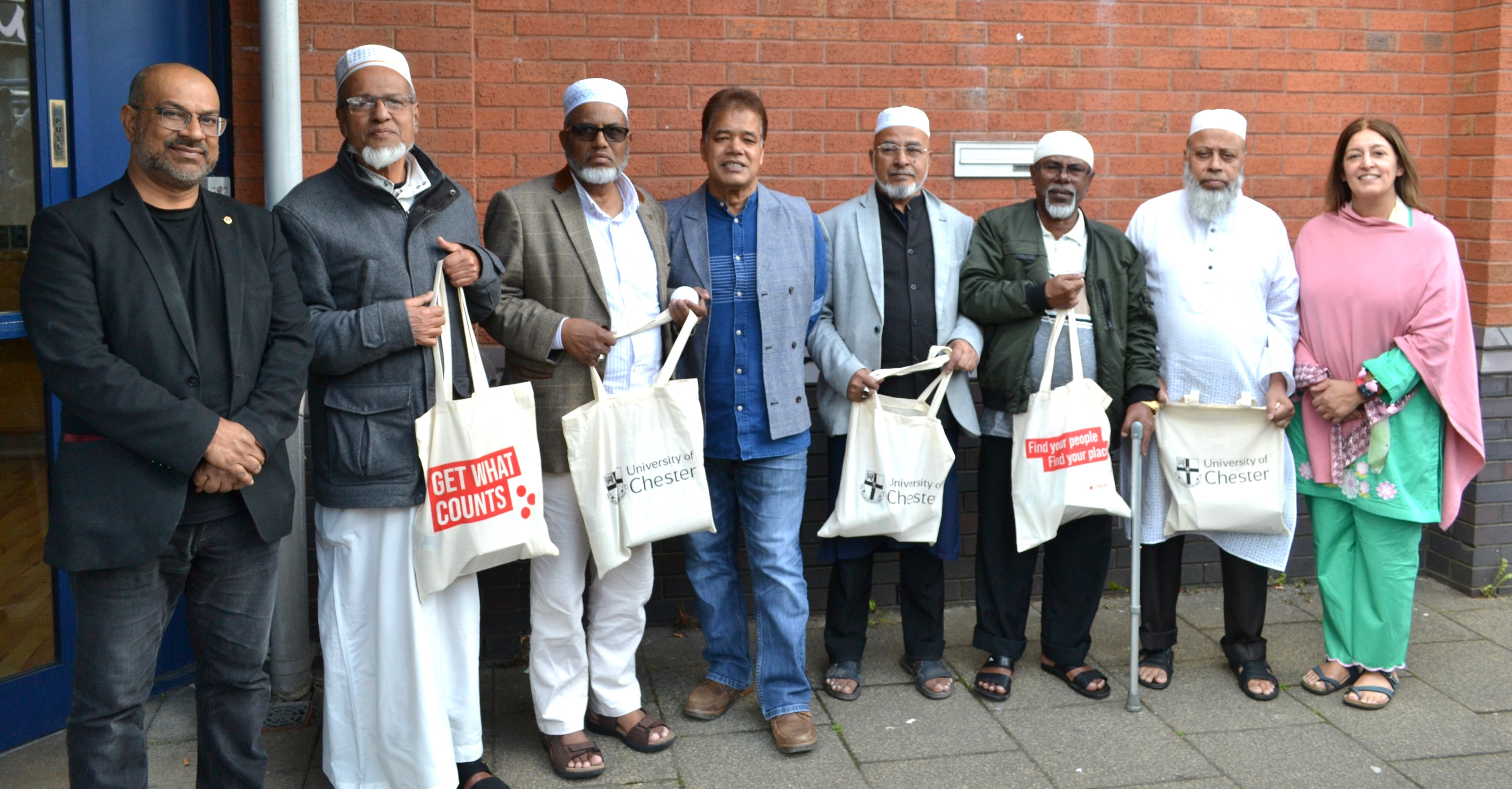Bangladeshi community finds Tangerine scheme appealing
Oldham’s Bangladeshi community has snapped-up the opportunity to join in a photography project to chart the food they eat – and see if that leads to a healthier diet and longer life.
Statistics show that life expectancy in Bangladesh is NINE years shorter than that in the UK.
And so, with the support of local social enterprise Upturn, the Tangerine project has asked focus group of men to take photos of their daily meals and grocery shops. This will be followed by individual and group discussions with follow-on guidance supported by experts including Professor Basma Ellahi, Professor of Public Health, Nutrition at the University of Chester.
“One of the issues around nutrition in older people is that so few from Bangladeshi descent feature in the available research. We are using a method called photovoice which is genuinely a first for us in Britain. It will rely on pictorial research which enable discussions around food issues that matter to this community and the eventual aim will be to produce a toolkit to help support the community to eat well for healthy ageing” said Professor Ellahi.
Tangerine’s Greater Manchester launch took place at the Millennium Centre on Featherstall Road, close to a variety of eateries, including traditional homemade cuisine and fast-food outlets. “This mix is one of the aspects we will be looking at and hoping that people choose to eat the best from both East and West” continued the Professor.
Other areas of interest, include:
- The time people consume their meals – will they eat like a King at breakfast and a pauper at night?
- What ingredients go into each meal – including whether traditional food is still cooked in ghee (clarified butter) and,
- Which items are bought from supermarkets compared to local shop produce of Eastern backgrounds?
The launch event was witnessed by visiting Karachi nutritionist, dietitian, and researcher Ms Fayza Khan, who noted: “Older people in Pakistan are very sedentary and whilst there are good hospitals – particularly private ones for those who can afford them – no campaigns on diet and exercise exist. This project is really interesting as it aims to reach those for whom messaging is usually inconsistent or does not research. Making use of these active groups in the community can really help and is similar to approaches we use in Pakistan.”
Nationally, the Tangerine programme is being led by Bournemouth University and is examining the eating habits of all of Britain’s BAME communities. “What we really need are individually tailored messages around nutrition and that can only begin by asking people what they eat and the context within which they eat,” said Prof Ellahi.
Anwar Ali OBE, CEO of Upturn said: “Our mission is to truly level-up society and that can only be achieved by helping the vulnerable. It’s a vicious cycle. Poverty brings poor nutrition, which in turn limits life chances, meaning lack of employment and education opportunities. This is very much uncharted territory and I thank those taking part plus the Universities of Bournemouth, Loughborough, and Chester for initiating what could be life-changing research.”
The Tangerine programme is funded by the Medical Research Council. Learn more about it at https://www.bournemouth.ac.uk/research/projects/tangerine.











